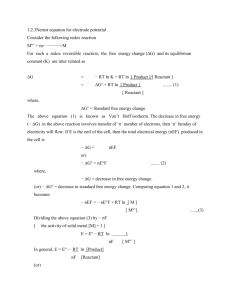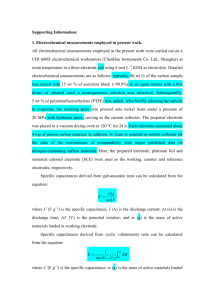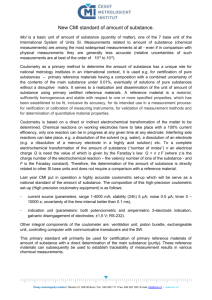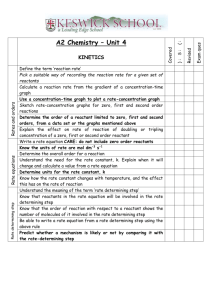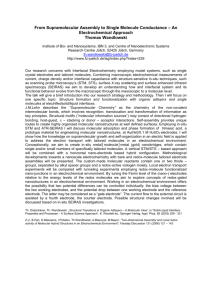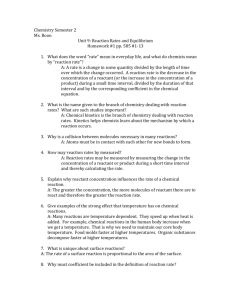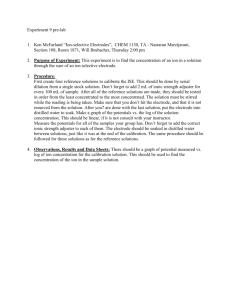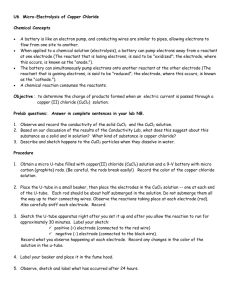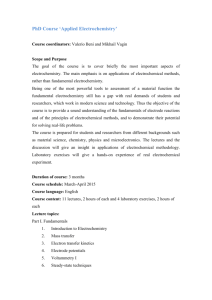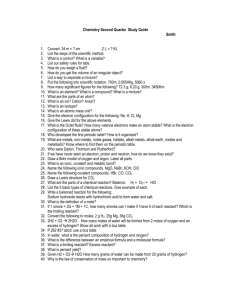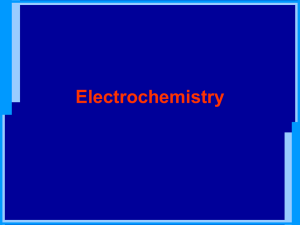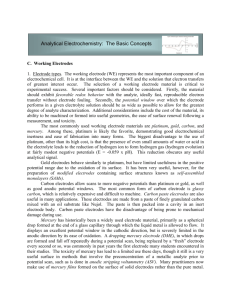Reduction A reaction involving electron gain. Oxidation A reaction
advertisement
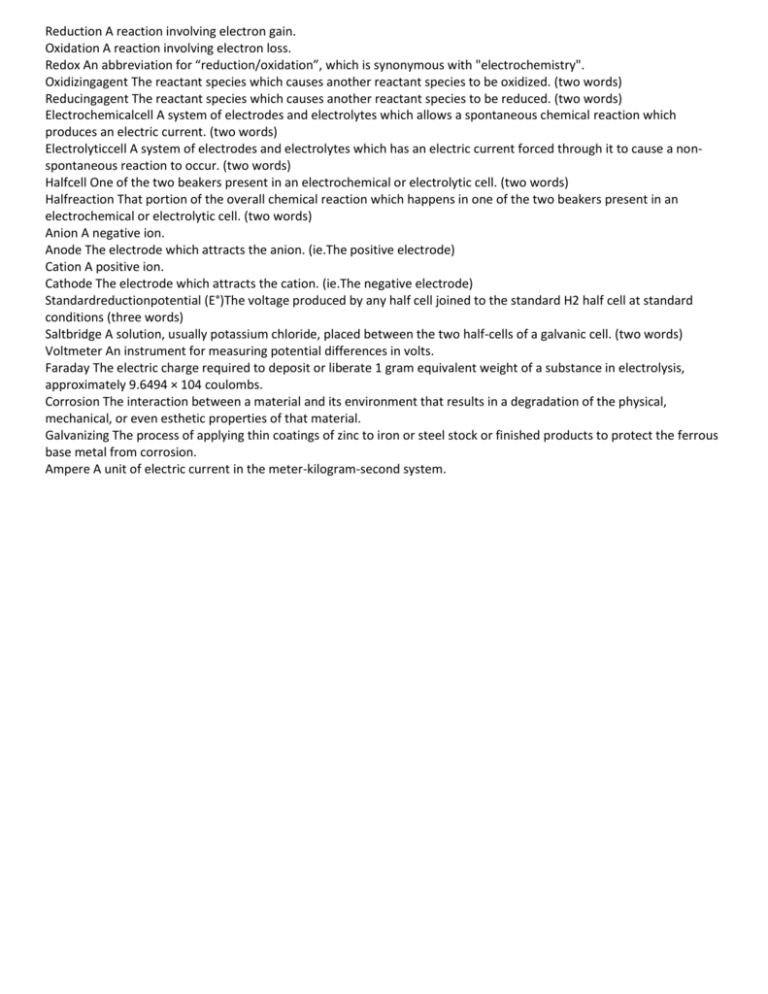
Reduction A reaction involving electron gain. Oxidation A reaction involving electron loss. Redox An abbreviation for “reduction/oxidation”, which is synonymous with "electrochemistry". Oxidizingagent The reactant species which causes another reactant species to be oxidized. (two words) Reducingagent The reactant species which causes another reactant species to be reduced. (two words) Electrochemicalcell A system of electrodes and electrolytes which allows a spontaneous chemical reaction which produces an electric current. (two words) Electrolyticcell A system of electrodes and electrolytes which has an electric current forced through it to cause a nonspontaneous reaction to occur. (two words) Halfcell One of the two beakers present in an electrochemical or electrolytic cell. (two words) Halfreaction That portion of the overall chemical reaction which happens in one of the two beakers present in an electrochemical or electrolytic cell. (two words) Anion A negative ion. Anode The electrode which attracts the anion. (ie.The positive electrode) Cation A positive ion. Cathode The electrode which attracts the cation. (ie.The negative electrode) Standardreductionpotential (E°)The voltage produced by any half cell joined to the standard H2 half cell at standard conditions (three words) Saltbridge A solution, usually potassium chloride, placed between the two half-cells of a galvanic cell. (two words) Voltmeter An instrument for measuring potential differences in volts. Faraday The electric charge required to deposit or liberate 1 gram equivalent weight of a substance in electrolysis, approximately 9.6494 × 104 coulombs. Corrosion The interaction between a material and its environment that results in a degradation of the physical, mechanical, or even esthetic properties of that material. Galvanizing The process of applying thin coatings of zinc to iron or steel stock or finished products to protect the ferrous base metal from corrosion. Ampere A unit of electric current in the meter-kilogram-second system. Across 3.The electrode which attracts the cation. (ie.The negative electrode) 5.That portion of the overall chemical reaction which happens in one of the two beakers present in an electrochemical or electrolytic cell. (two words) 8.A solution, usually potassium chloride, placed between the two half-cells of a galvanic cell. (two words) Across 11. The interaction between a material and its environment that results in a degradation of the physical, mechanical, or even esthetic properties of that material. ELECTROCHEMISTRY CROSSWORD Down 1. A reaction involving electron gain. 2.(E°)The voltage produced by any half cell joined to the standard H2 half cell at standard conditions (three words) 4.The reactant causes another species to be words) species which reactant reduced. (two 6.A system of and electrolytes a spontaneous reaction which electric current. electrodes which allows chemical produces an (two words) Down Across 14. The reactant species which causes another reactant species to be oxidized. (two words) 15. The electric charge required to deposit or liberate 1 gram equivalent weight of a substance in electrolysis, approximately 9.6494 × 104 coulombs. 17. An abbreviation for “reduction/oxidation”, which is synonymous with "electrochemistry". 18. An instrument for measuring potential differences in volts. 19. A positive ion. 20. The process of applying thin coatings of zinc to iron or steel stock or finished products to protect the ferrous base metal from corrosion. 7. A system of electrodes and electrolytes which has an electric current forced through it to cause a non-spontaneous reaction to occur. (two words) 9. A unit of electric current in the meter-kilogram-second system. 10. A negative ion. 12. A reaction involving electron loss. 13. One of the two beakers present in an electrochemical or electrolytic cell. (two words) 16. The electrode which attracts the anion. (ie.The positive electrode)
